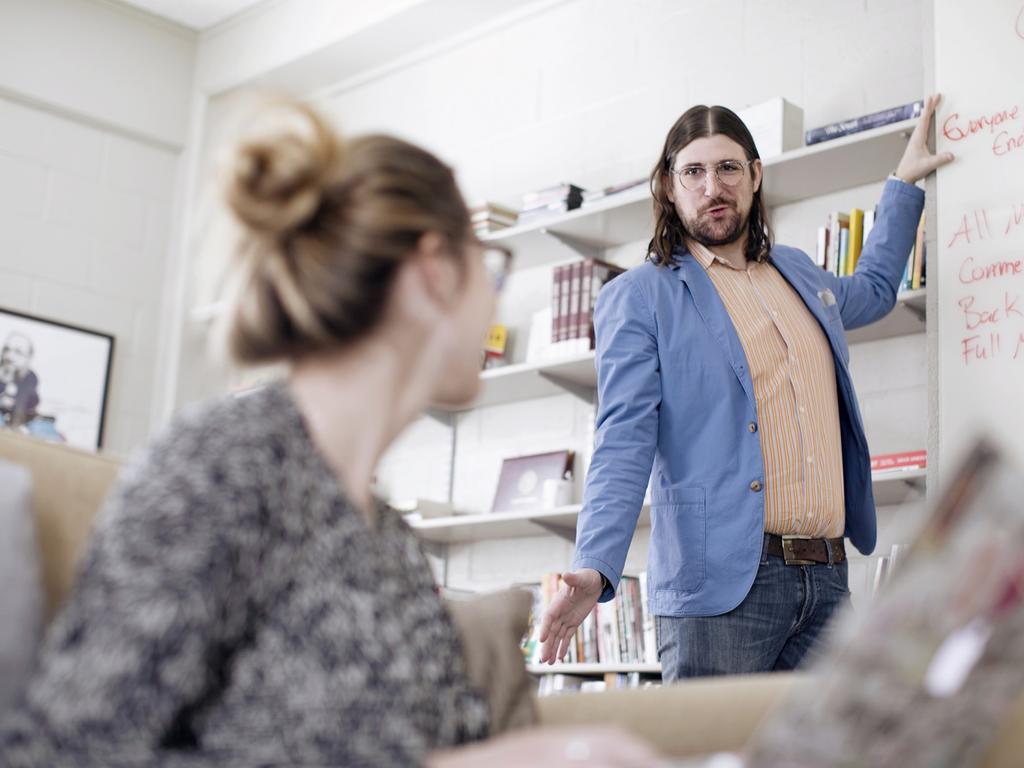Rhodes College is being awarded nearly $1.2 million for a project to support undergraduates interested in becoming K-12 mathematics and science teachers in high-needs school districts and to participate in research opportunities throughout their degree program to expand their skill set as educators.
The grant comes from the Robert Noyce Teacher Scholarship Program of the National Science Foundation. The Urban Teacher Partnership for Culturally Relevant STEM Education is the name of the five-year project at Rhodes.
“With this program, we are trying something new for training and retaining STEM teachers by combining significant lab-based research experiences with our methods-centric field experiences in local urban schools,” says Dr. Zac Casey, assistant professor of educational studies at Rhodes and the project’s principal investigator.
Co-principal investigators are Drs. Dana Horgen, assistant professor of chemistry; Chris Seaton, associate professor of mathematics; and Jonathan Fitz Gerald, associate professor of biology.
“Very few colleges offer STEM majors as many opportunities to do hands-on research with faculty mentors as we do here at Rhodes,” says Casey. “The NSF recognized this as strength of our college, and agreed with us that we can use these already existing strengths to recruit more high-impact STEM teachers to working-class urban schools.”
A total of 18 students, beginning in their sophomore year and majoring in STEM (science, technology, engineering, and mathematics) fields at Rhodes will be recruited to become Noyce Scholars, through an application that will be available soon. If selected, Noyce Scholars will begin their work as early as the summer between sophomore and junior year and continue through graduation.
Once selected, students will receive scholarships to be paid out in their junior and senior years and their student teaching semester from 2019-2024. Testing fees associated with teacher certification also will be covered, and students also will receive a $500 grant to work with a faculty member to help them purchase supplies for their own classrooms. Noyce Scholars must agree to teach in high-need school districts for five years after completing the Rhodes program.
“The program will see students double major in Educational Studies and a STEM discipline that they will become certified to teach in,” says Casey. “With paid research experiences for all of their junior and senior years, as well as full time over one summer, the program offers students the chance to really learn how to embed inquiry-based approaches to math and science in their own future classrooms.”
Other project highlights include STEM Week, part of the Urban Education Summer Institute, featuring daily lab-based professional development sessions for Noyce Scholars and practicing teachers for one week on campus; STEM 101, a two-day experience in local schools working with teachers and students on inquiry-based STEM projects where Noyce Scholars can learn more about using what they’ve learned in the lab in the classroom with K-12 students; talks by leaders in the field of STEM teacher education who also will work with Noyce Scholars; funding for faculty who work with the students on campus at Rhodes; and stipends for local teachers who partner with Rhodes in STEM 101 and STEM Week.
